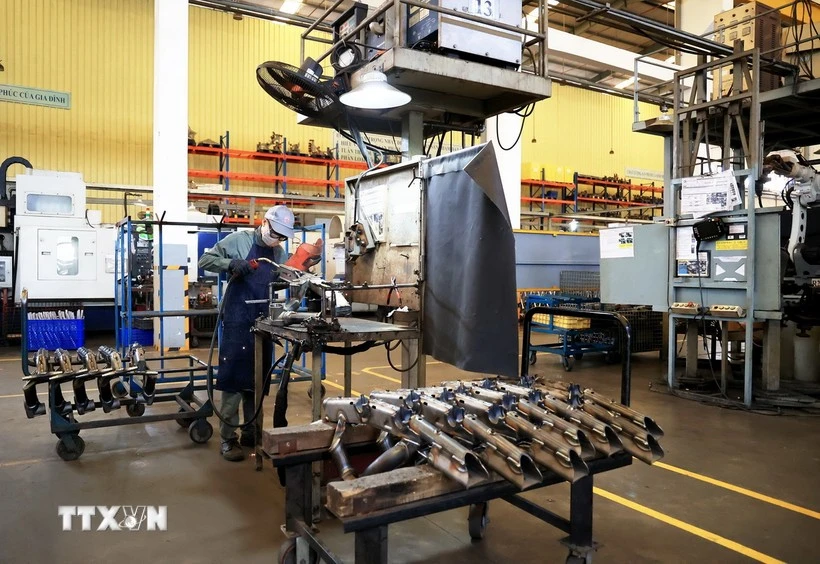Positive market figures fuel expectations for stable development climate
The Purchasing Managers' Index (PMI) of the Vietnamese manufacturing sector rebounded above the 50.0 no-change mark, fostering hopes for a stable climate in which businesses can prosper.

The Purchasing Managers' Index (PMI) of the Vietnamese manufacturing sector rebounded above the 50.0 no-change mark, fostering hopes for a stable climate in which businesses can prosper.
The PMI, recently released by S&P Global, rose to 50.3 from 48.8 in March, indicating a slight improvement in the health of the manufacturing sector – the third consecutive one in the past four months.
The economics director at S&P Global Market Intelligence, Andrew Harker, assessed that Vietnam's manufacturing sector has seen an increase in new orders in April following recent weakness. As a result, the number of workers returning to work might increase.
With these indicators, Harker said he expects a more stable environment to help manufacturers plan production and prepare resources efficiently.
Data from the General Statistics Office (GSO) shows that with the entry of 15,300 enterprises into the market in April, the number of newly established firms in the first four months surpassed 51,550, above the average of the past two years and marking the highest to date.
However, although the average registered capital per enterprise has increased, it has yet to return to the level of 12.8 billion VND (512,000 USD) logged in the 2019-2022 period. This shows that they are still cautious about investing in production and business activities.
The volume of those returning to operation between January and April, meanwhile, reached 29,700, up 2.4% year-on-year, further reflecting the recovery from the COVID-19 pandemic.
The number of temporarily suspended businesses stood at 60,900, an annual rise of 21.9%. There were 19,100 ceasing operations pending dissolution and 6,400 completing dissolution procedures, down 9% and up 4.9% against the same period last year. On average, 21,600 businesses withdrew from the market each month.
In a word, the number of businesses exiting the market remains higher than those of newly established and returning ones, which means many challenges facing the production and business environment.
Nguyen Bich Lam, an economic expert and former GSO Director-General, stated that the long-term economy cannot rely solely on public investment. It needs solutions to improve the business climate and reinvigorate private investment as the main and most important growth driver./.








